

Today we’d like to introduce you to Maria Vaughan and Michael Wedum.
Hi Maria and Michael, so excited to have you on the platform. So, before we get into questions about your work-life, maybe you can bring our readers up to speed on your story and how you got to where you are today?
Maria- In a time where innovation in technology and globalization are constantly progressing, stability in our resources and materials are rapidly diminishing. The idea of Code of Return Compost was to establish an action of resourcefulness by regenerating the byproducts back to the start of the consumer cycle. We are not just a company that makes compost. Compost is the finished product. The mission is focusing on food waste and processing it into a valuable amendment for our local food production again. The act of composting creates a strong resilient community. It targets environmental, social, and economic problems in conventional linear systems in our consumption and disposal. A code of return.
Michael- We often take most of our public services, such as waste management, for granted. However, by allowing our resources to go to a landfill, we are throwing away our opportunity to thrive through nutrient-rich food grown from the perceived “waste” stream. We often remind our clients that once they make the decision to work with us, their waste is a captured resource. We derived our name, Code of Return, as part of the methodology of Sir Albert Howard, who noted the direct link between our health and that of the soil. Our health has always been related to our food source and its proximity to our table. The further the distance from our table, the further from nutritious it is. Each of us are responsible for what we put in our bodies; we (COR) are here to help others be responsible for what we put in the soil.
Maria- Our first signups in 2019 were green-minded local restaurants such as Green Truck, Sentient Bean, and the Foxy coffee joints. We currently are working with 25 businesses now from small cafes to hotels such as The Hyatt and Desoto. I think it’s important for businesses to take the lead in their footprint and influence on their community and its patrons. Restaurants can now focus from farm to table, and table back to farm. Local sourcing, local supply. Waste costs every single time its moved, right down to the tipping fees at the landfill. Diverting a percentage of the sanitation budget to a service they already were paying for instead to a regenerative process has added benefits of promoting their efforts in the public eye. We focus on tracking volumes so they can see their footprint and so we can highlight this action regularly on social media platforms. By the end of 2019, we started getting a lot of interest from homeowners that wanted the opportunity because they live in an apartment or didn’t have the time to do it themselves. In 2020 we joined the Forsyth Farmers Market as Savannah’s first-ever food waste transfer station. Since startup up we have had over 730 signups. We also created 3 self-serve stations that are accessible throughout the week and curbside pickup services. We want to create opportunity for everyone to compost no matter their time, space, or budget. We tell signups to pick their convenience.
I’m sure you wouldn’t say it’s been obstacle-free, but so far would you say the journey has been a fairly smooth road?
Maria-Starting a new business is very challenging. Even more so when it involves an industry that isn’t recognized in many municipal ordinances across the country. Savannah is a city that has done the research to determine that composting should be a large focus for their sustainability efforts, yet they are very behind in regulations and acceptance of this venture as a business. Paving that way has been very difficult and at times extremely discouraging. But we aren’t letting that stop us!
Fairly fresh in the game plan last year was challenging as well during COVID. With our main revenue coming from services with restaurants it took a direct hit on our progression. We decided to continue to work with the accounts that were still operating last year complimentary for 6 months. We didn’t want businesses to have to choose to cut an expense that was good for the environment.
Residents on the other hand were focusing local and sustainable and found solace in something positive to look forward to in a time of instability.
Alright, so let’s switch gears a bit and talk business. What should we know?
We are proud to be able to offer multiple ways to compost with us from DIY and free transfer options, to let us take care of it all for you and get your compost back on your doorstep.
Our goal is to also be a completely regenerative operation. Capturing and recycling all water at the facility as well as using all alternative natural energy to power our operation and machinery. We are exploring and studying biogas and biofuel. Right now, our main initial process in the compost uses forced air that is self-regulated on a timer and powered by solar. Having a system such as this means a smaller footprint, less time, and less fuel to move the piles. It is also designed for urban areas not only for the footprint but also because this design has proven to cut emissions and odors by over 90%.
Can you share something surprising about yourself?
Michael is a veteran and currently a registered massage therapist.
I still work over 30 hours a week as a hairstylist a profession I have had for almost 20 years.
We are raising 3 children.
It is never too late to pursue your passion and change up your future pathway. These industries all seem unrelatable to each other yet they led us to the individuals we are now
Pricing:
- Free self serve stations
- $1 a drop at the market- compost back
- $15/month- every other week pick up service
- $20/month-every week
Contact Info:
- Email: [email protected]
- Website: www.corcompost.com
- Instagram: @corcompost
- Facebook: Code of Return
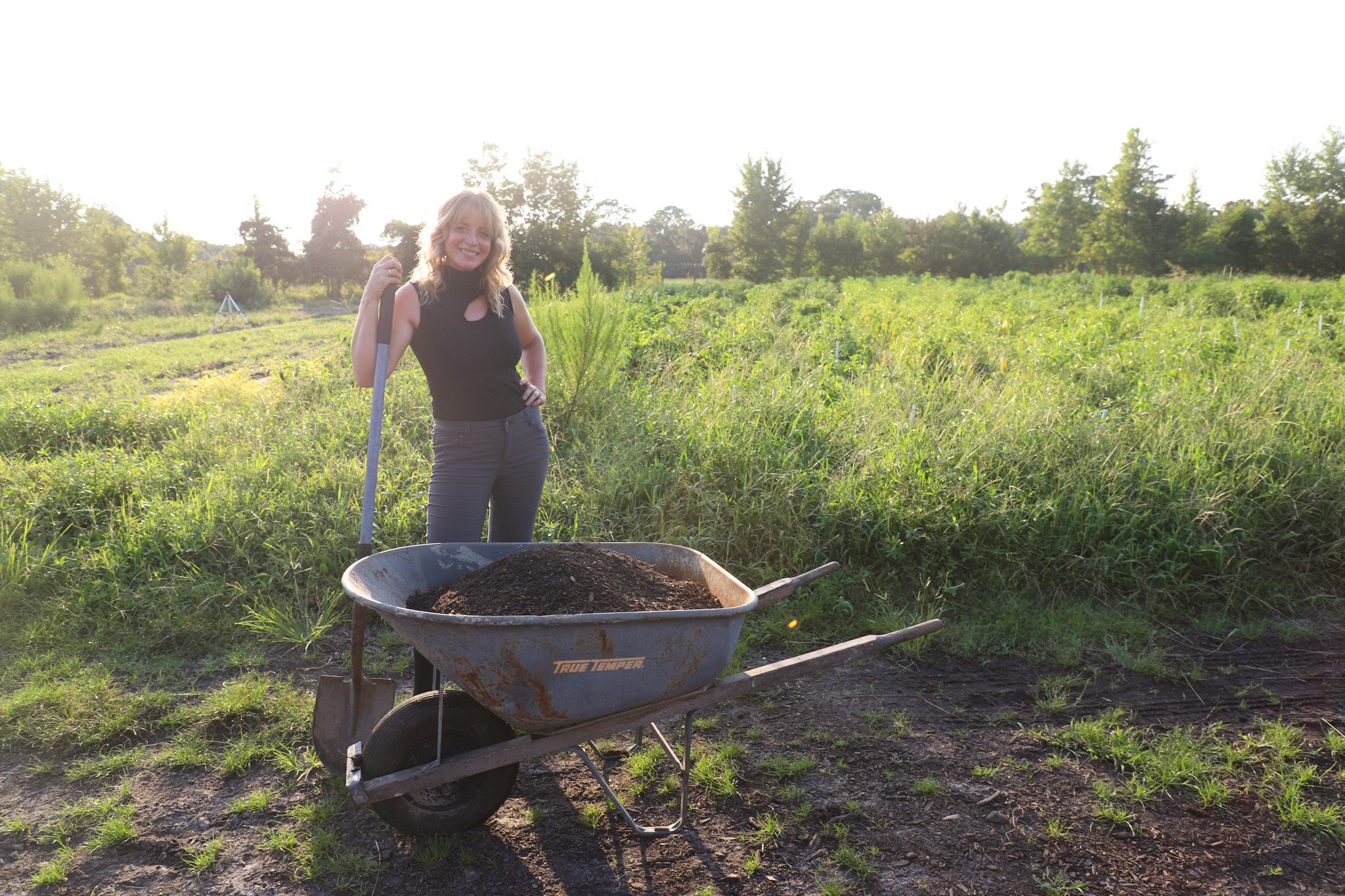
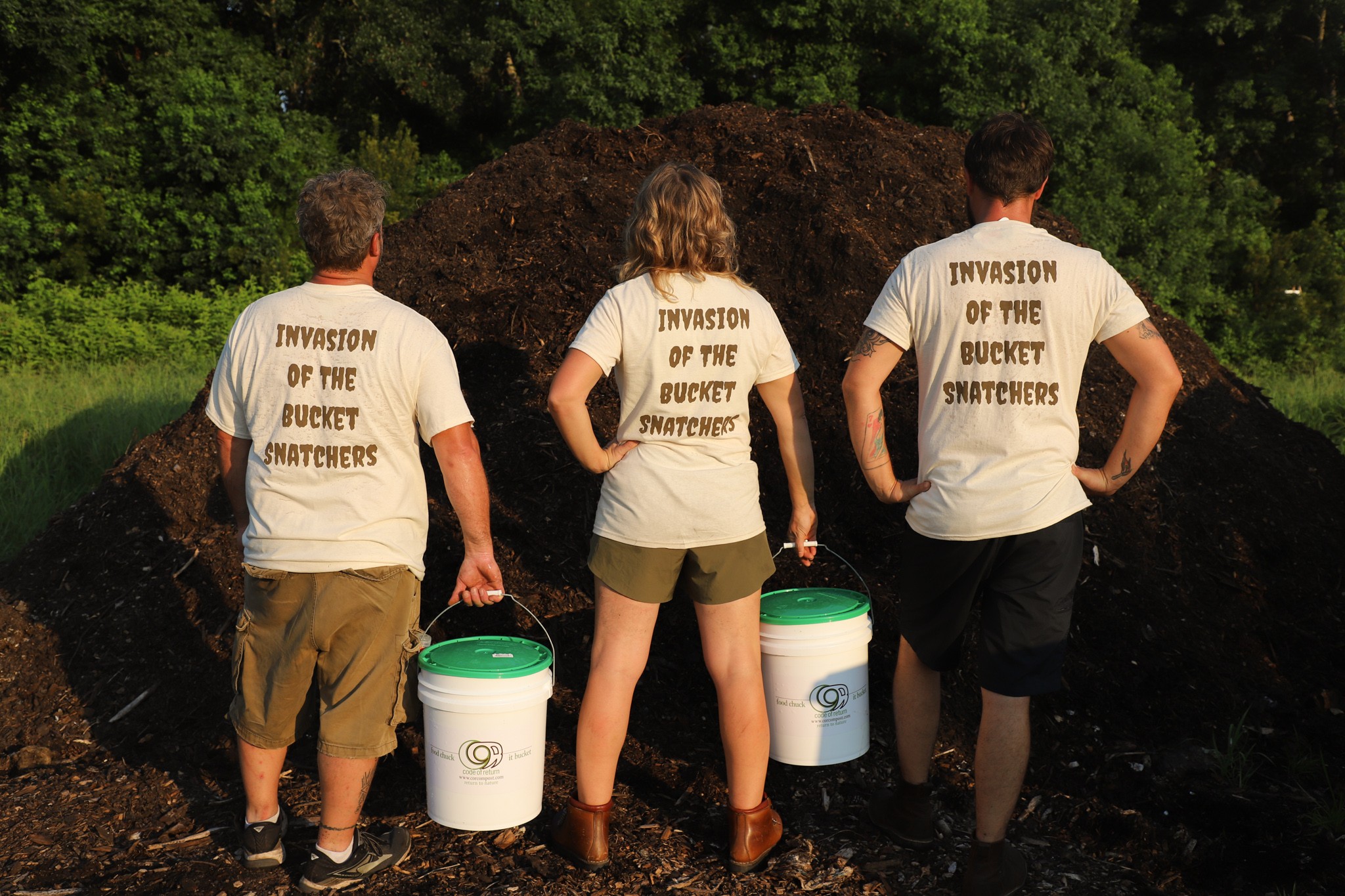
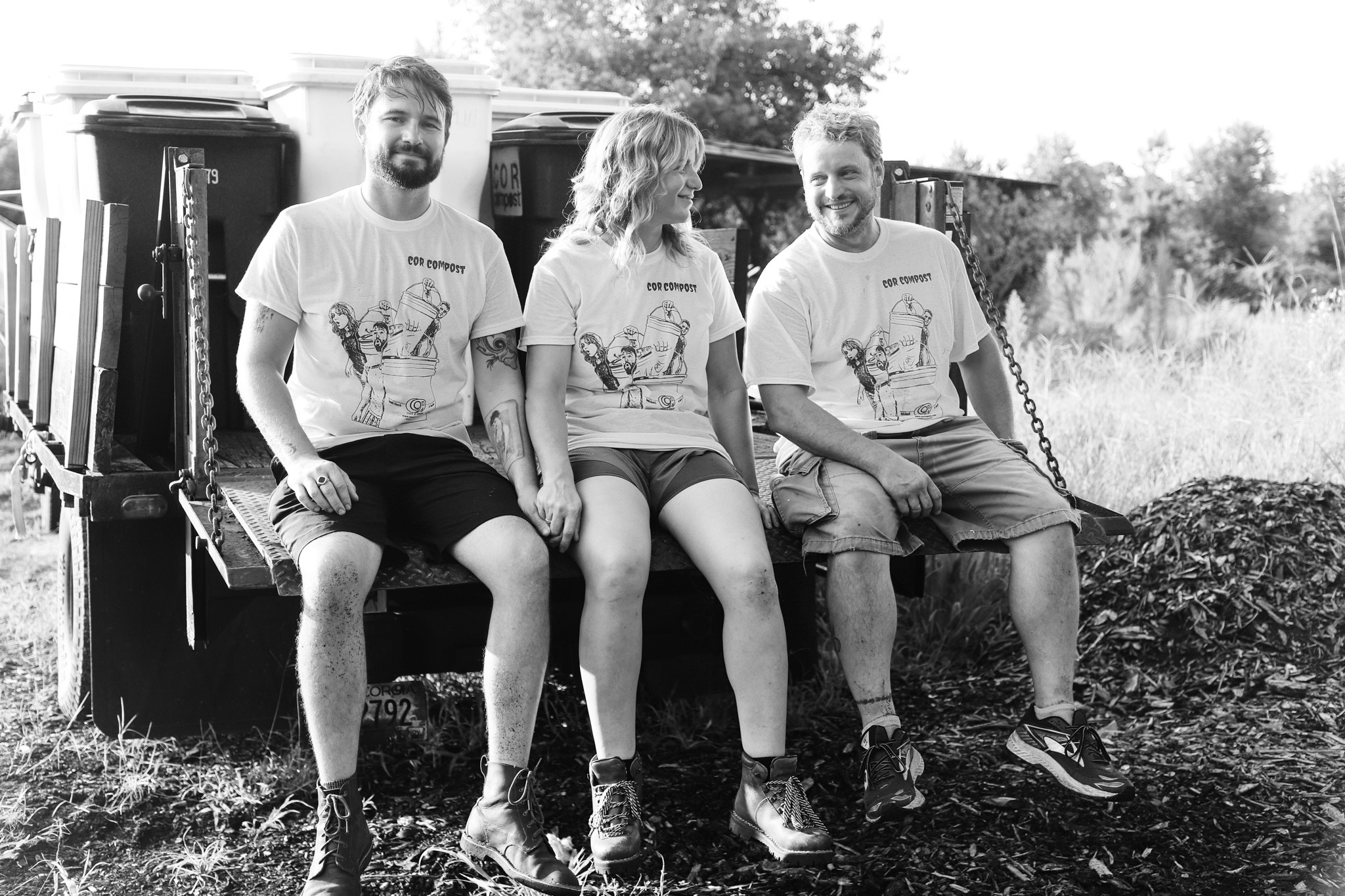
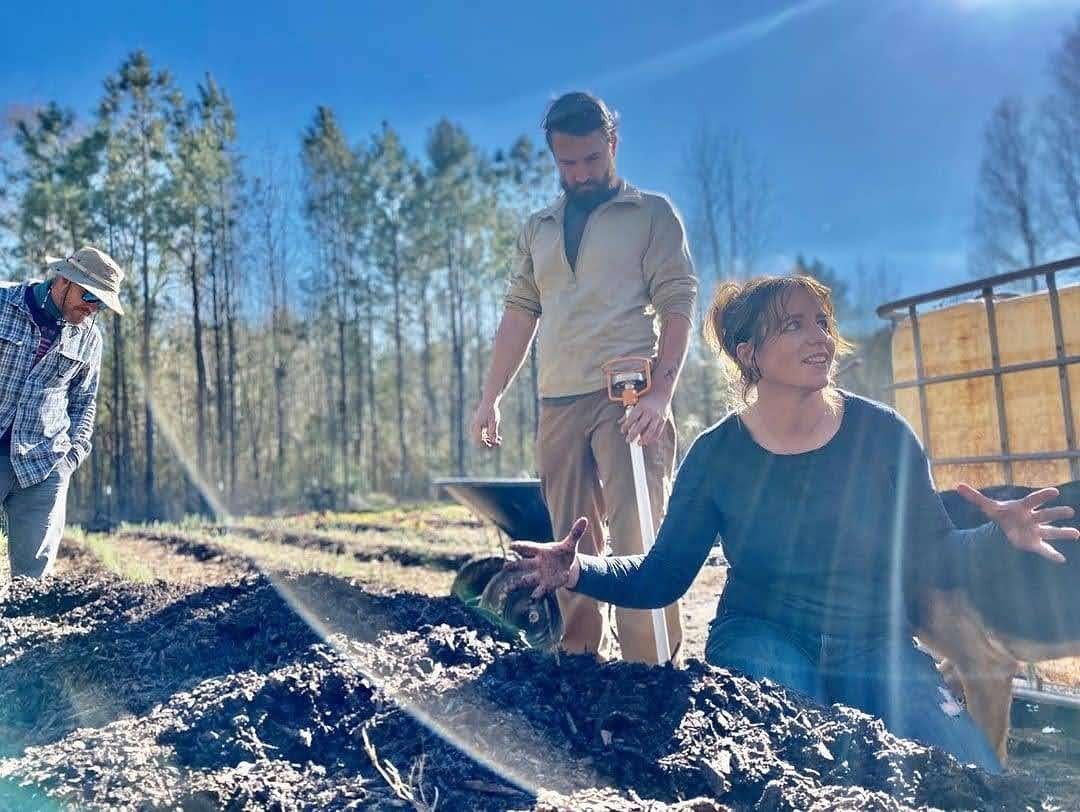
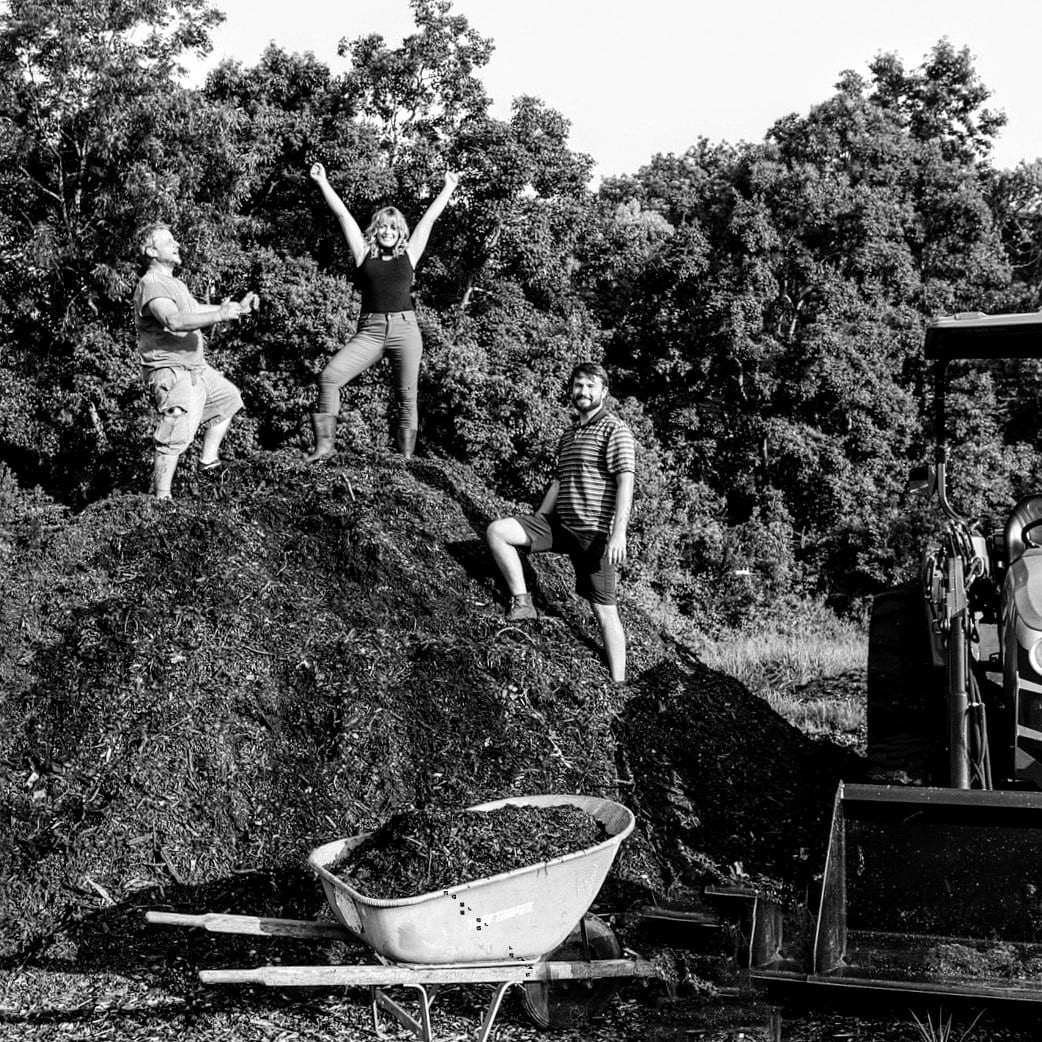
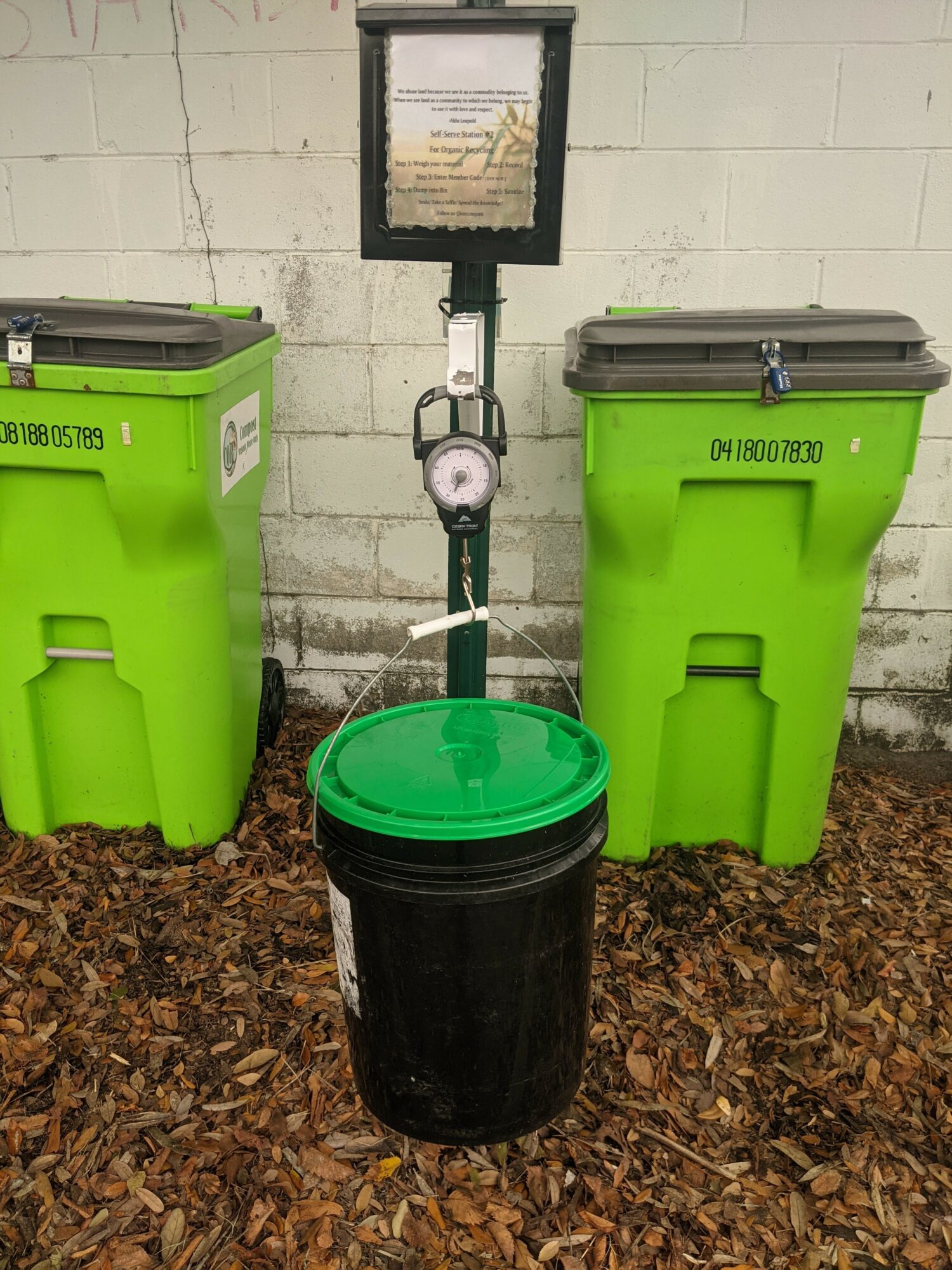
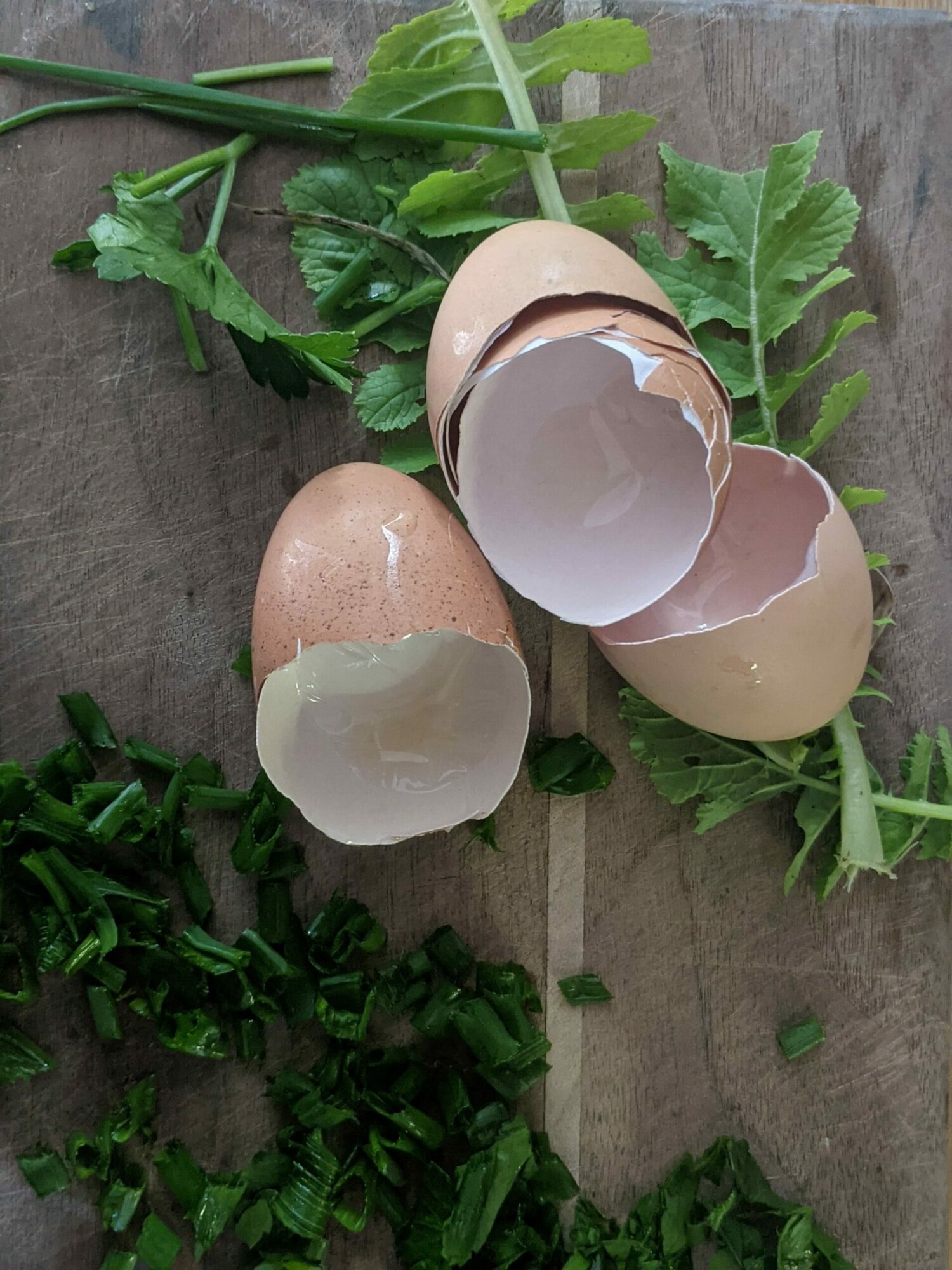 Image Credits
Image Credits
Leeann Ritch Photography











